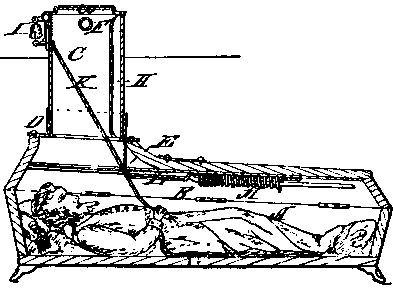
“We’ll be holding a wake at my Mum’s house. I wonder why they call it a wake? I mean, it’s not like she’s going to wake up anytime soon.”
It was an off the cuff remark, it got me wondering: why was the ‘afterparty’ of a funeral called a wake? And when I found out, the answer wasn’t pretty:
A party that was thrown around the body, just to make sure the corpse didn’t “wake” up.
Presumably this phrase was coined before people learned how to correctly take a pulse but the more I looked into it, the more I came to realise the phrases we use freely today often have a sinister back story.
LIKE Debrief Daily on Facebook.
If you’ve ever dropped ‘you’re pulling my leg’ or ‘what’s the matter, cat got your tongue?’ into conversation, you’re probably not aware of the grim, and often terrifying, origin of the sayings. And I can’t help but think that once you are across these, you’ll probably be a little less comfortable using them. For example:
1. ‘Saved by the bell.’
What we think it means: Being considered fortunate because a metaphorical or literal bell has sounded.
The grim reality: This saying comes from a fear of being buried alive. Back in the day (presumably before people knew how to read pulses), the dead were buried with string tied to their wrist: this was passed through the coffin lid and up through the ground, then tied to a bell. Then some unlucky person would have to sit in the graveyard all night and listen, in case the ‘corpse’ wasn’t really dead and was ringing the bell to let people know.







